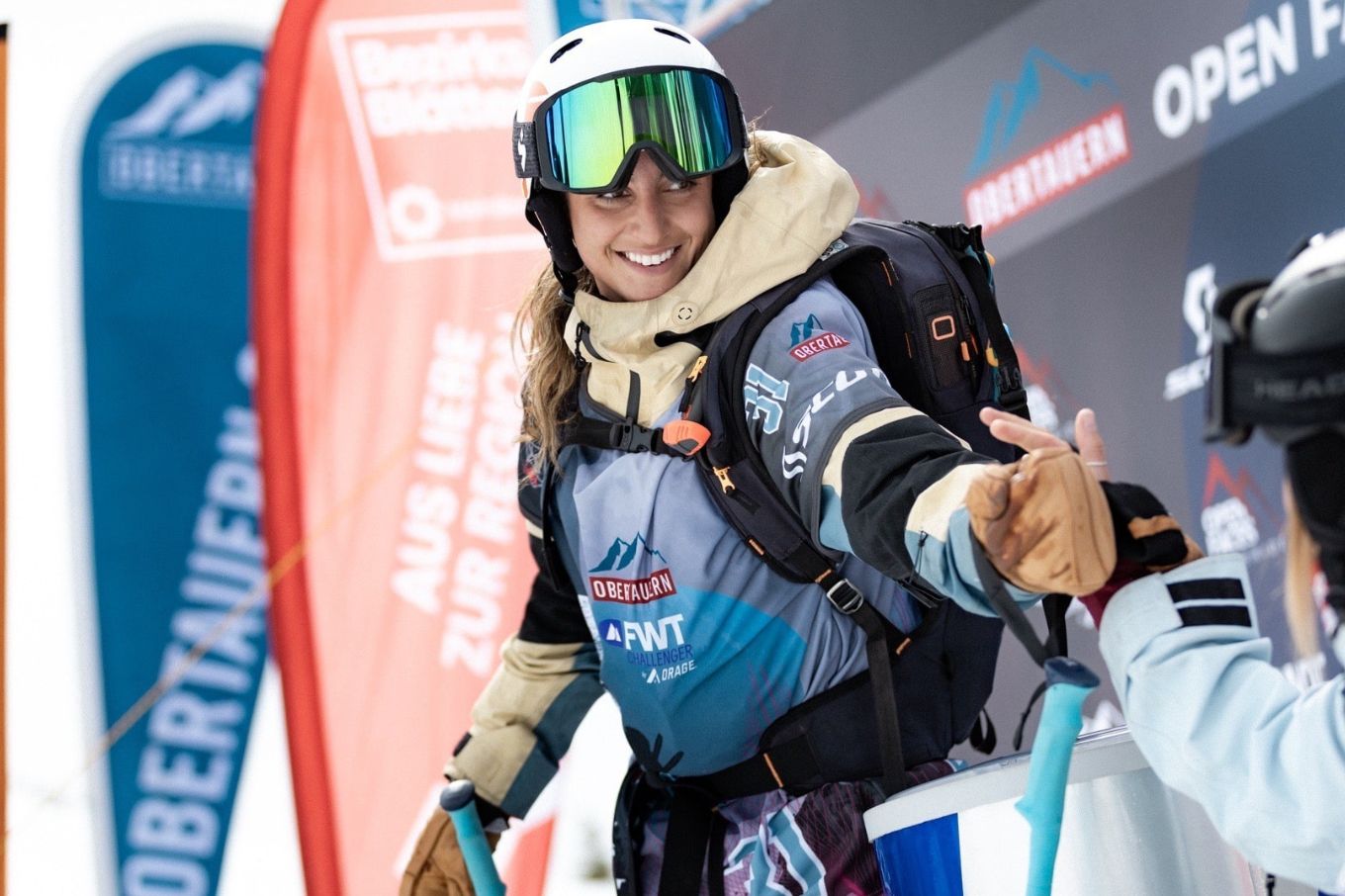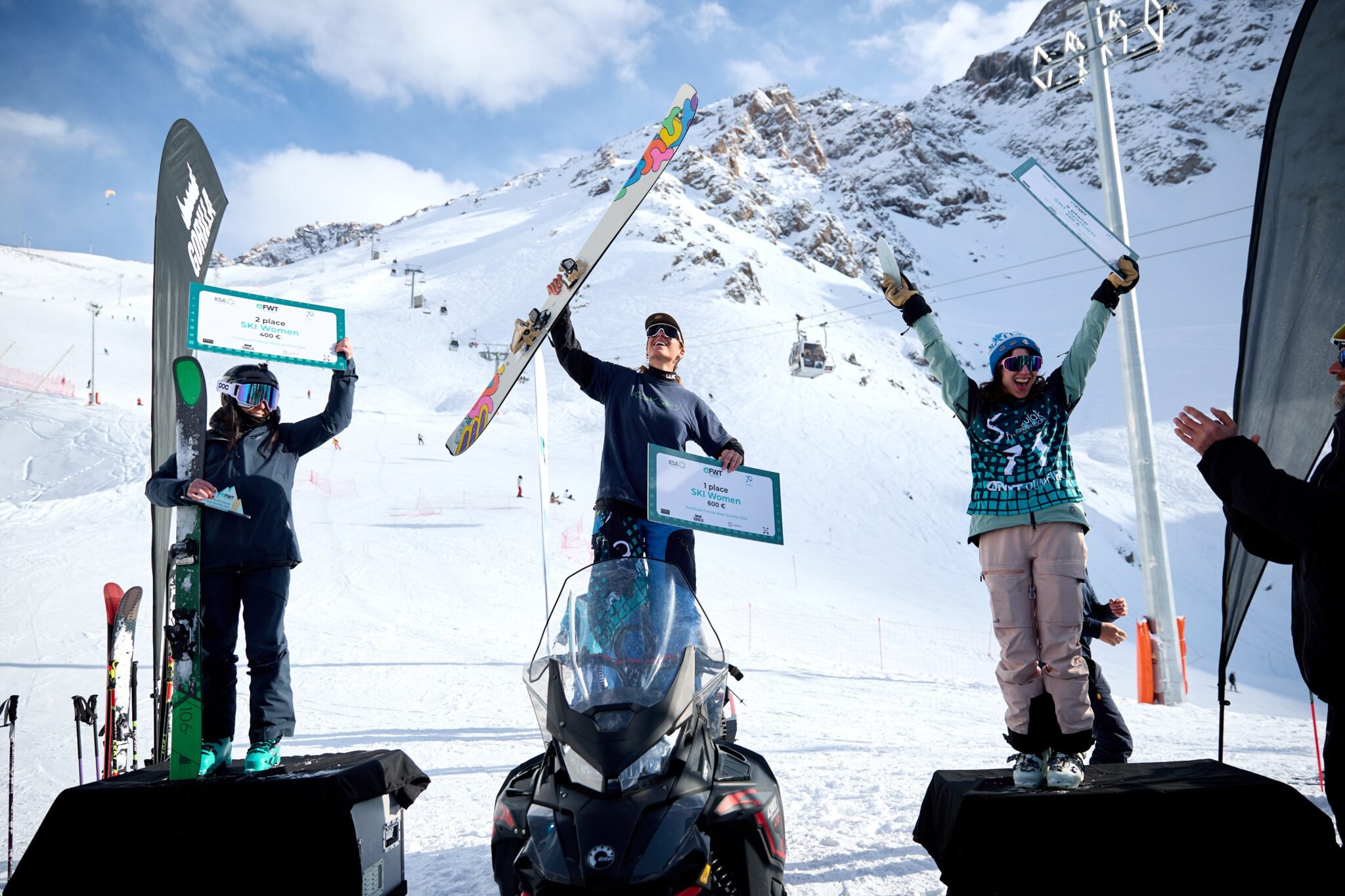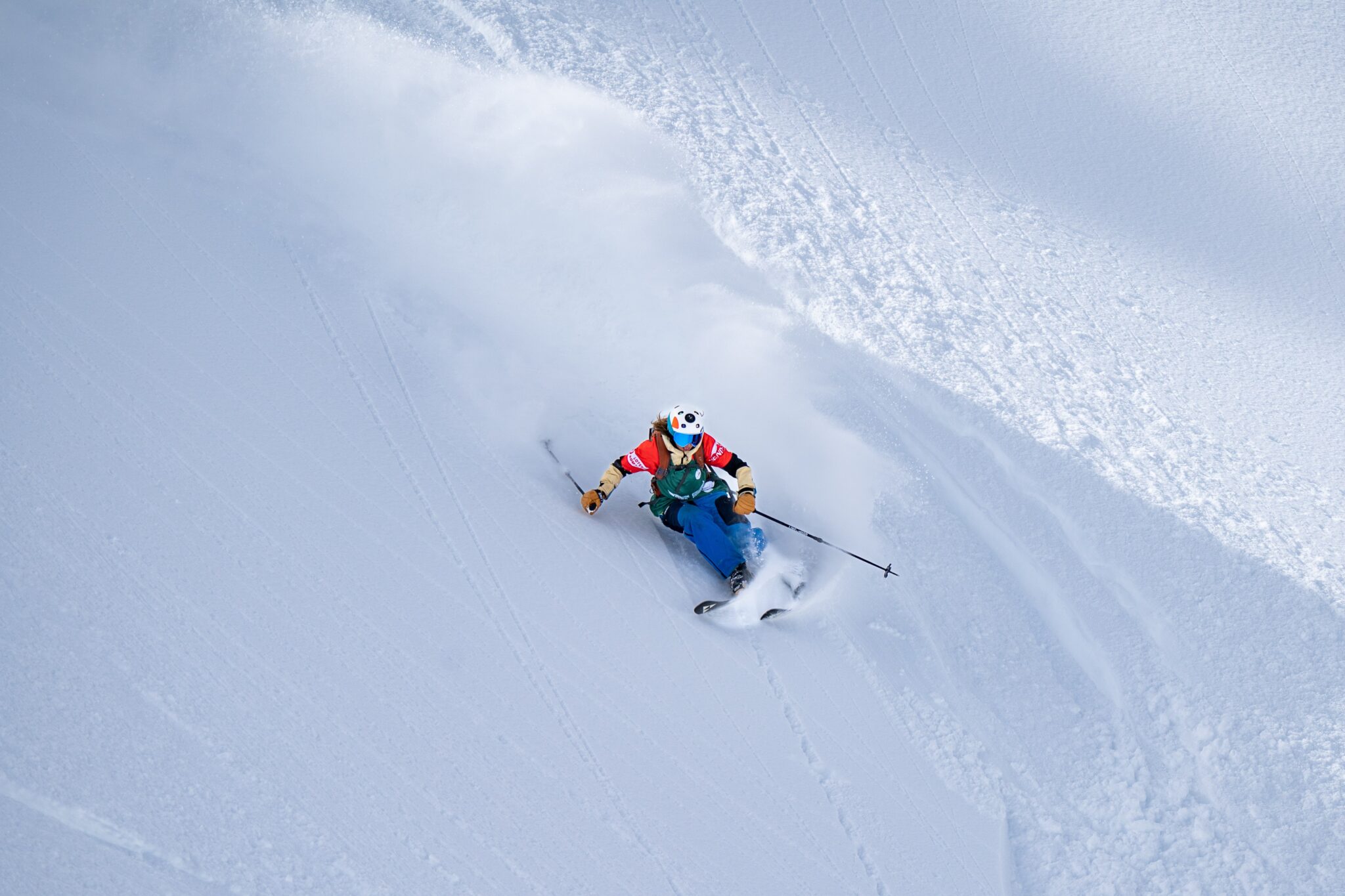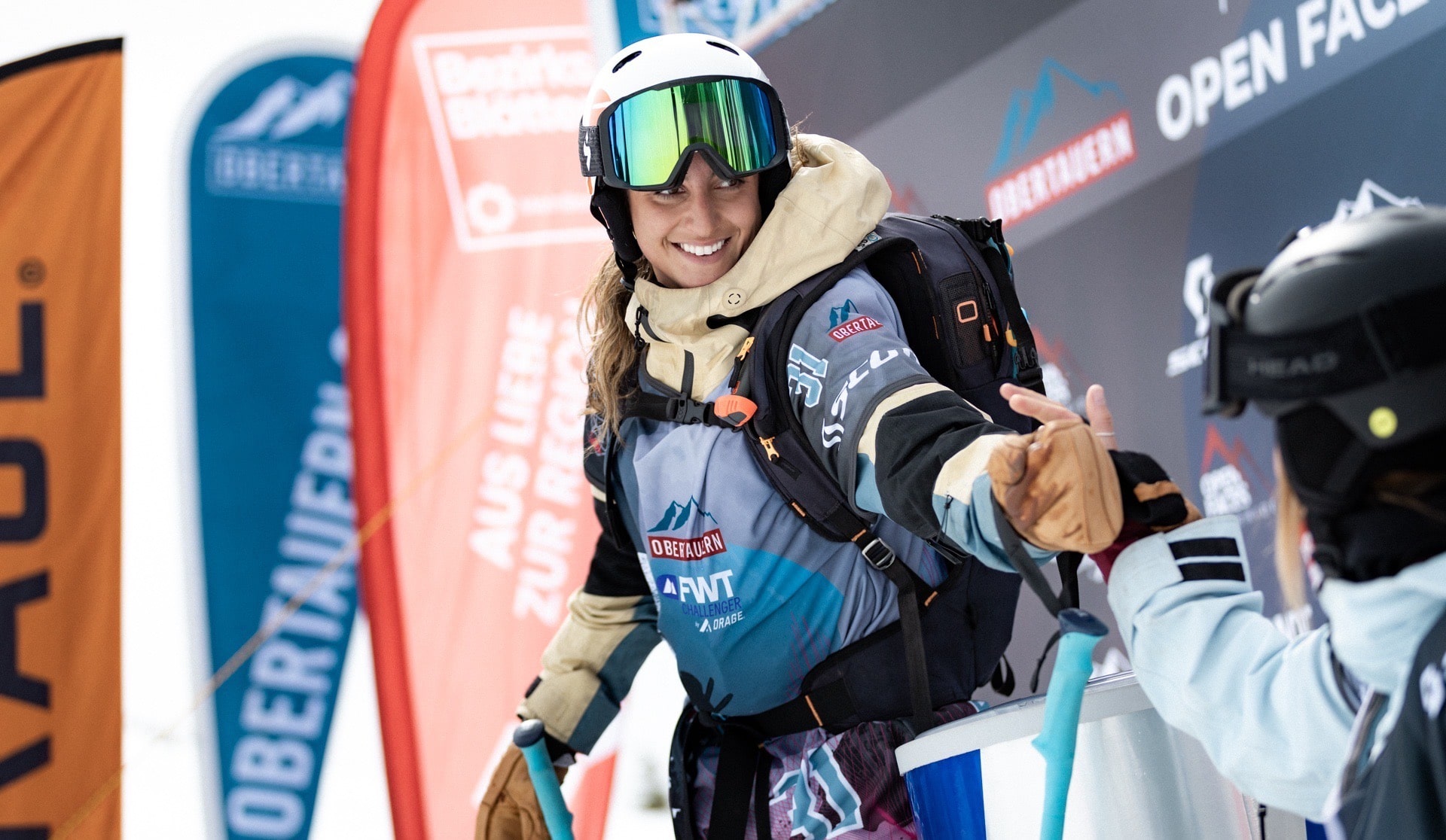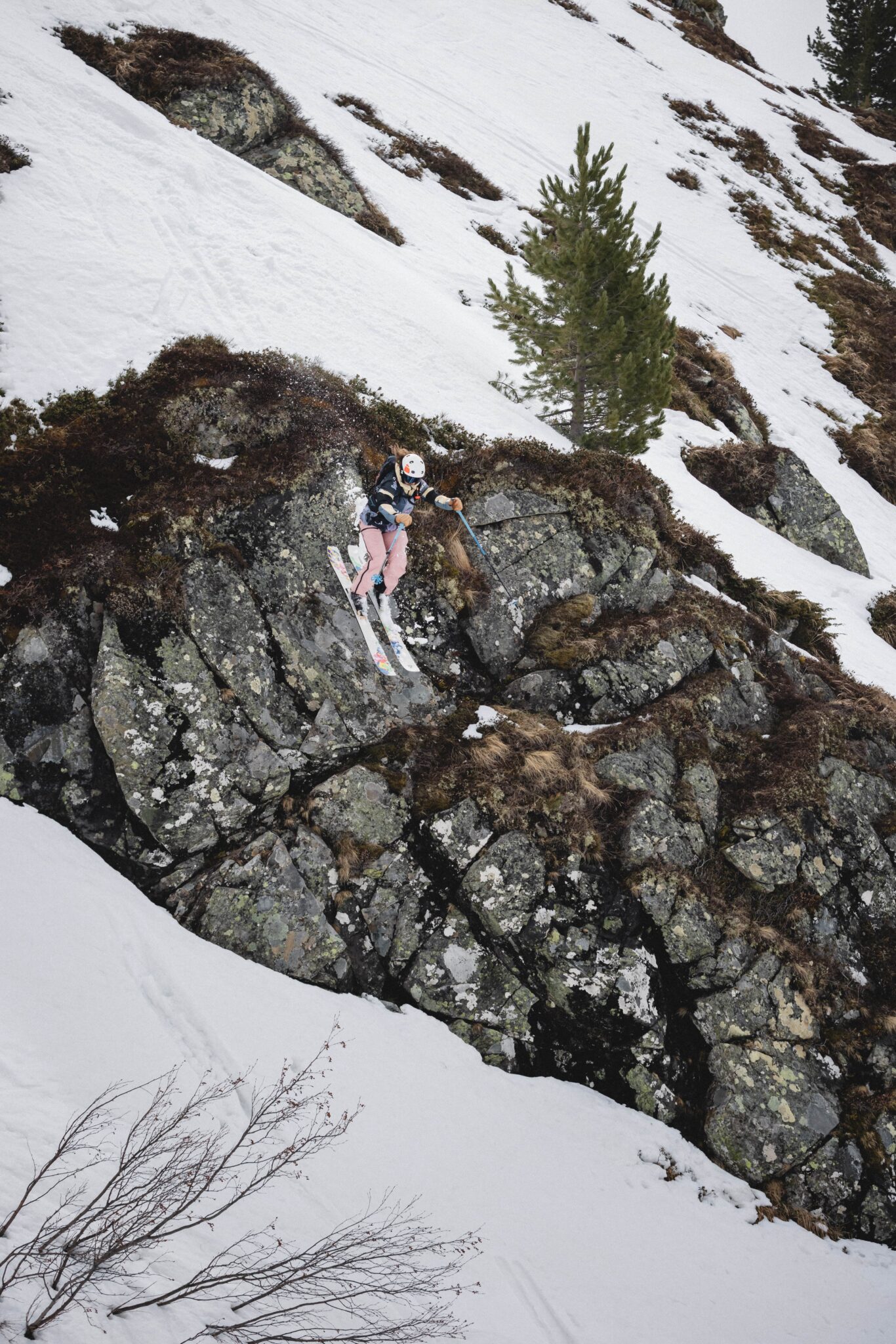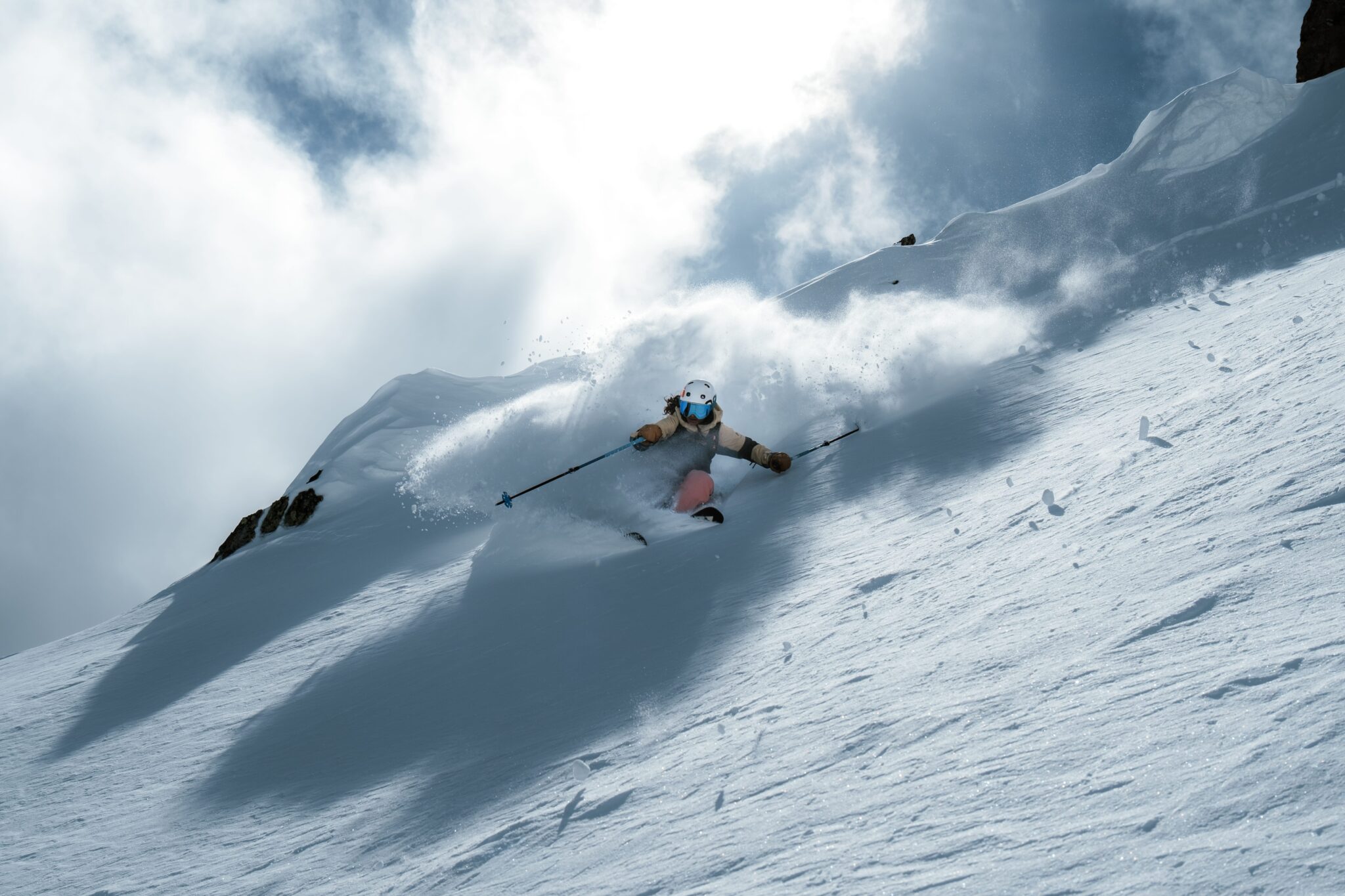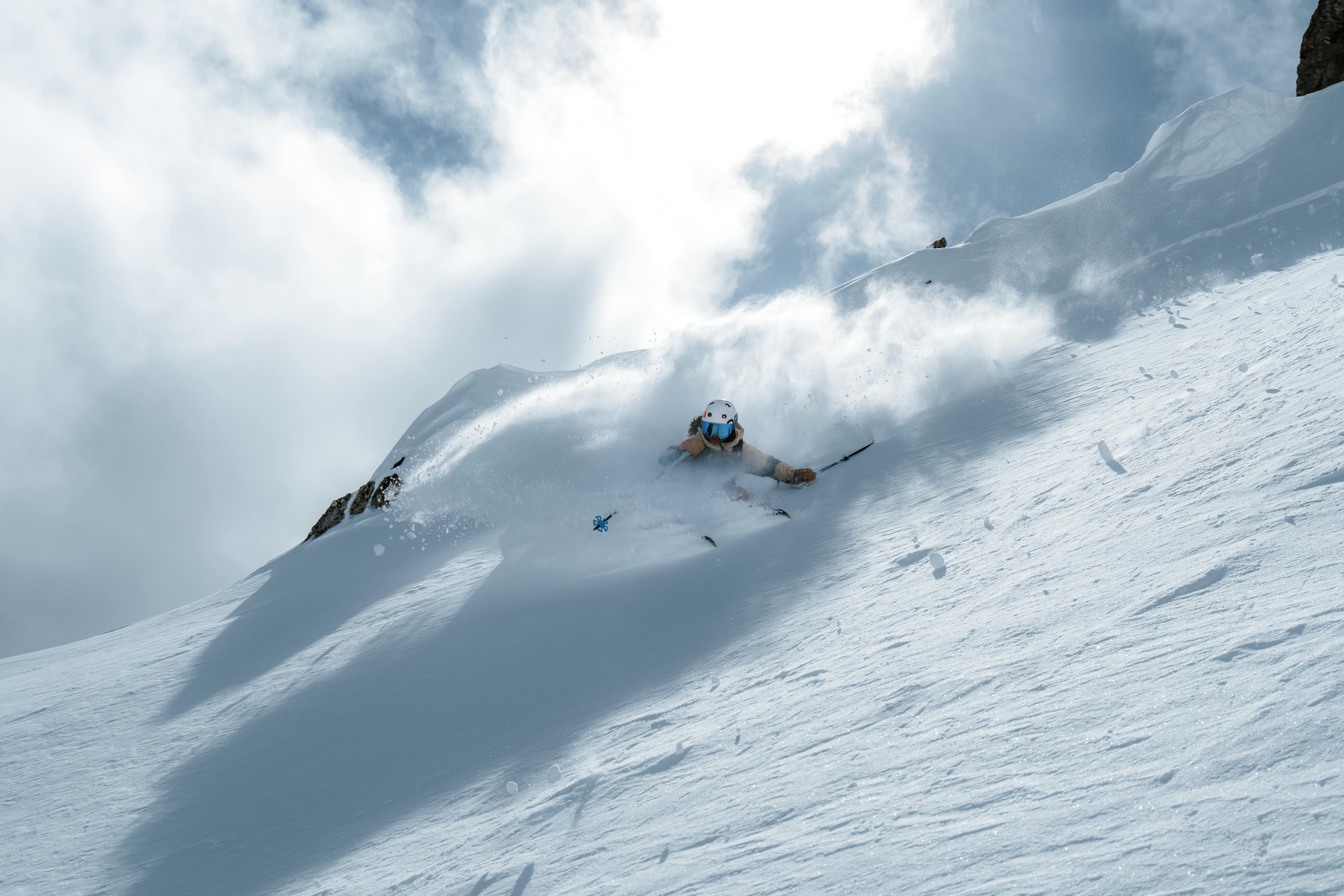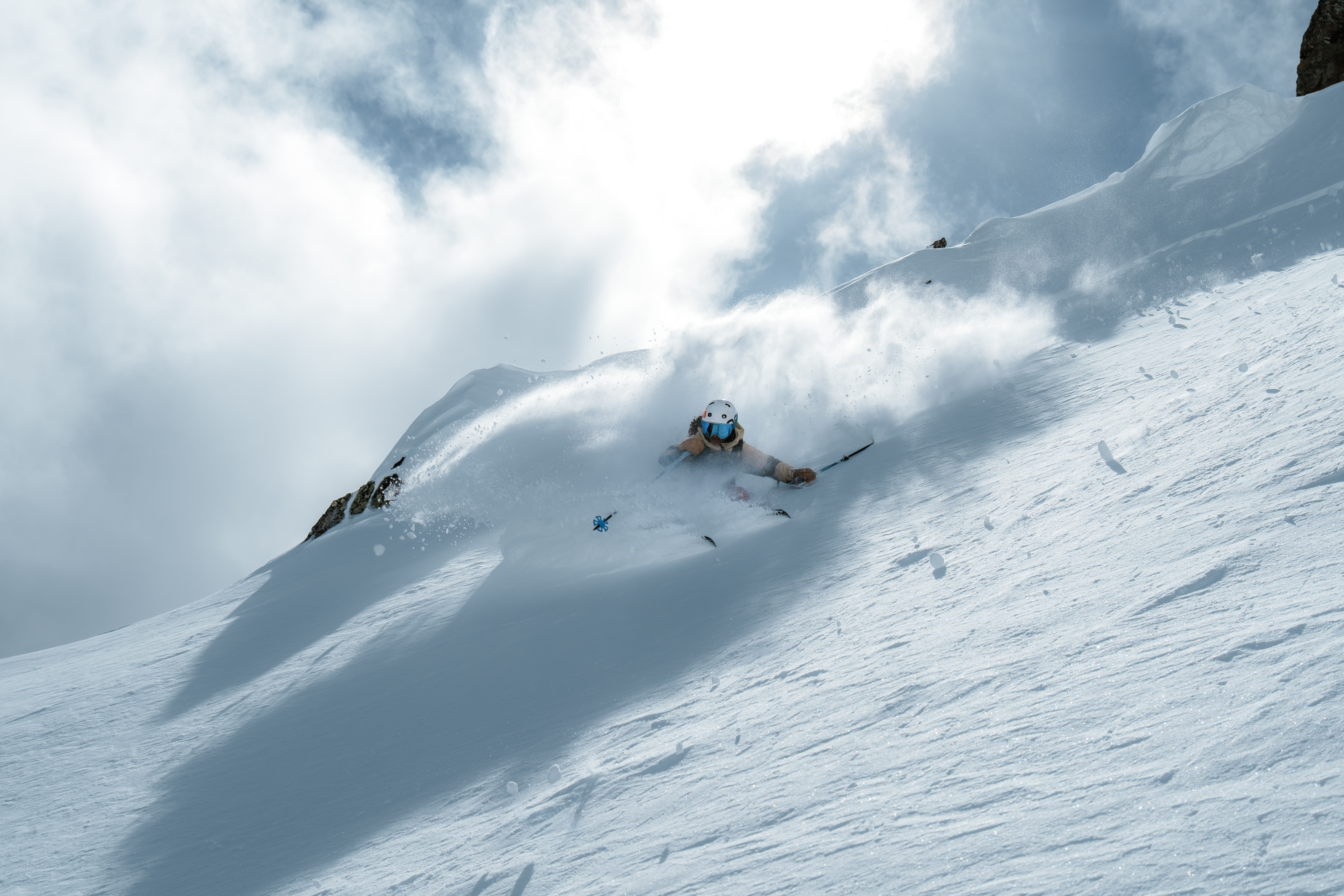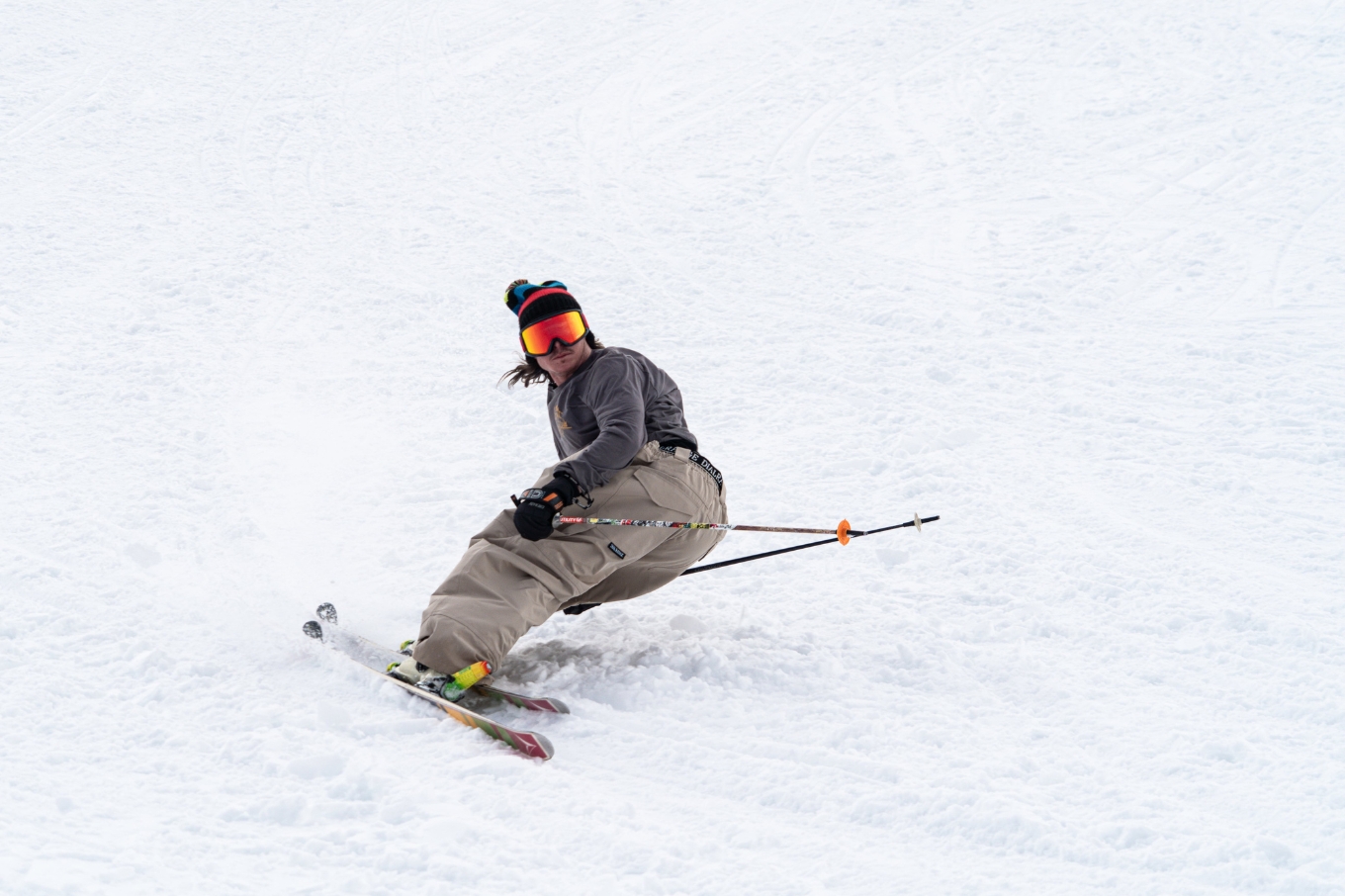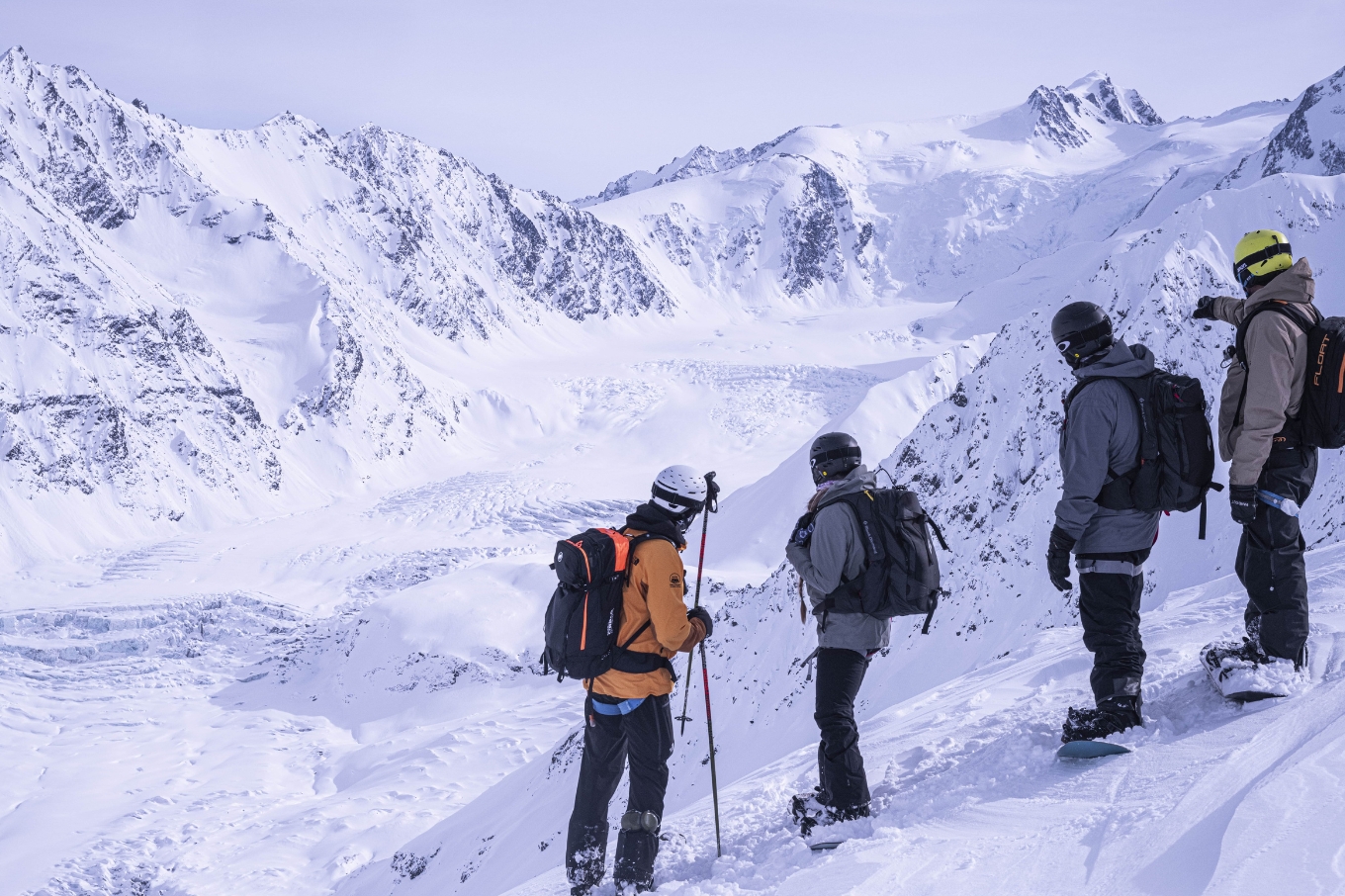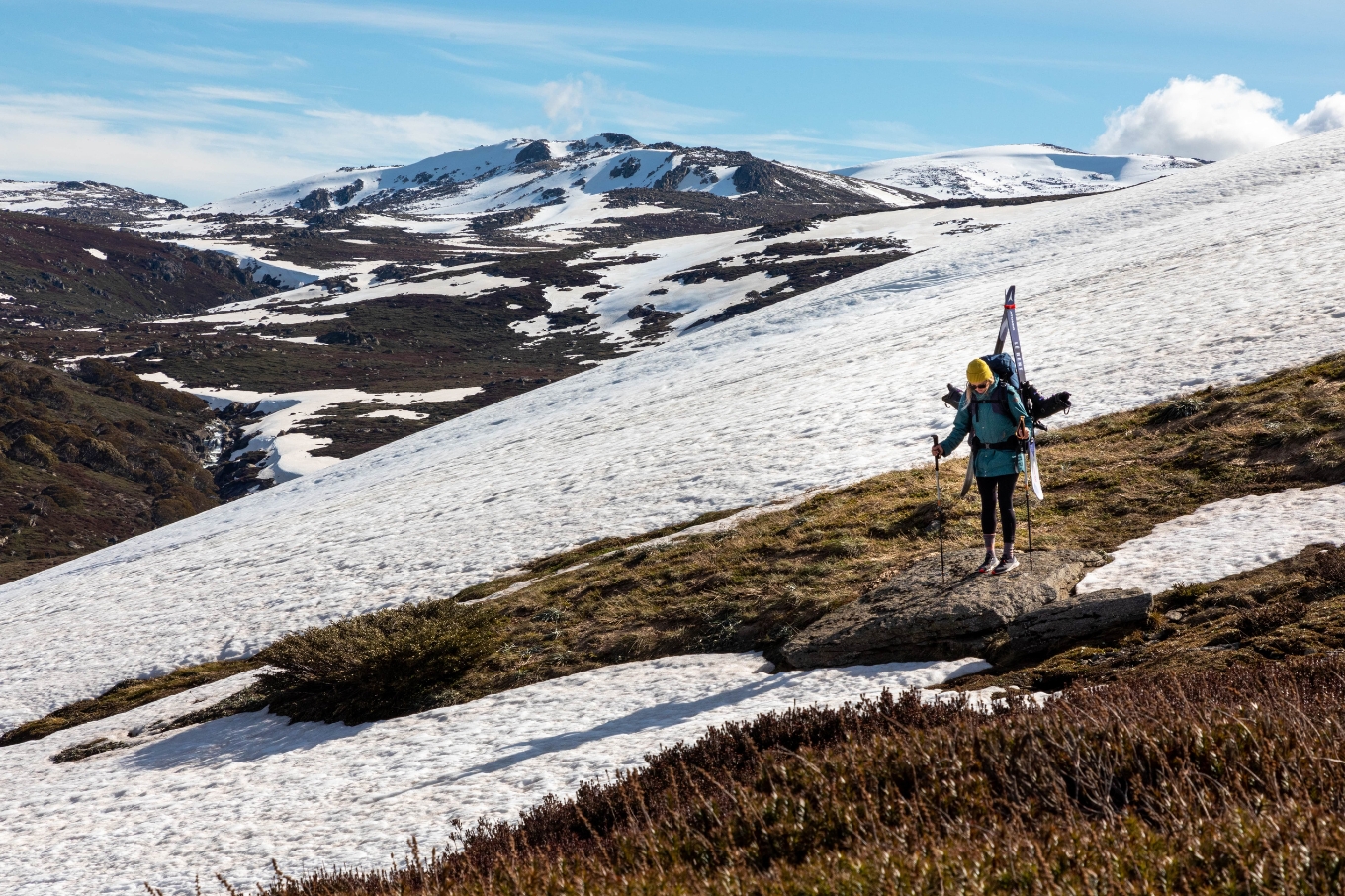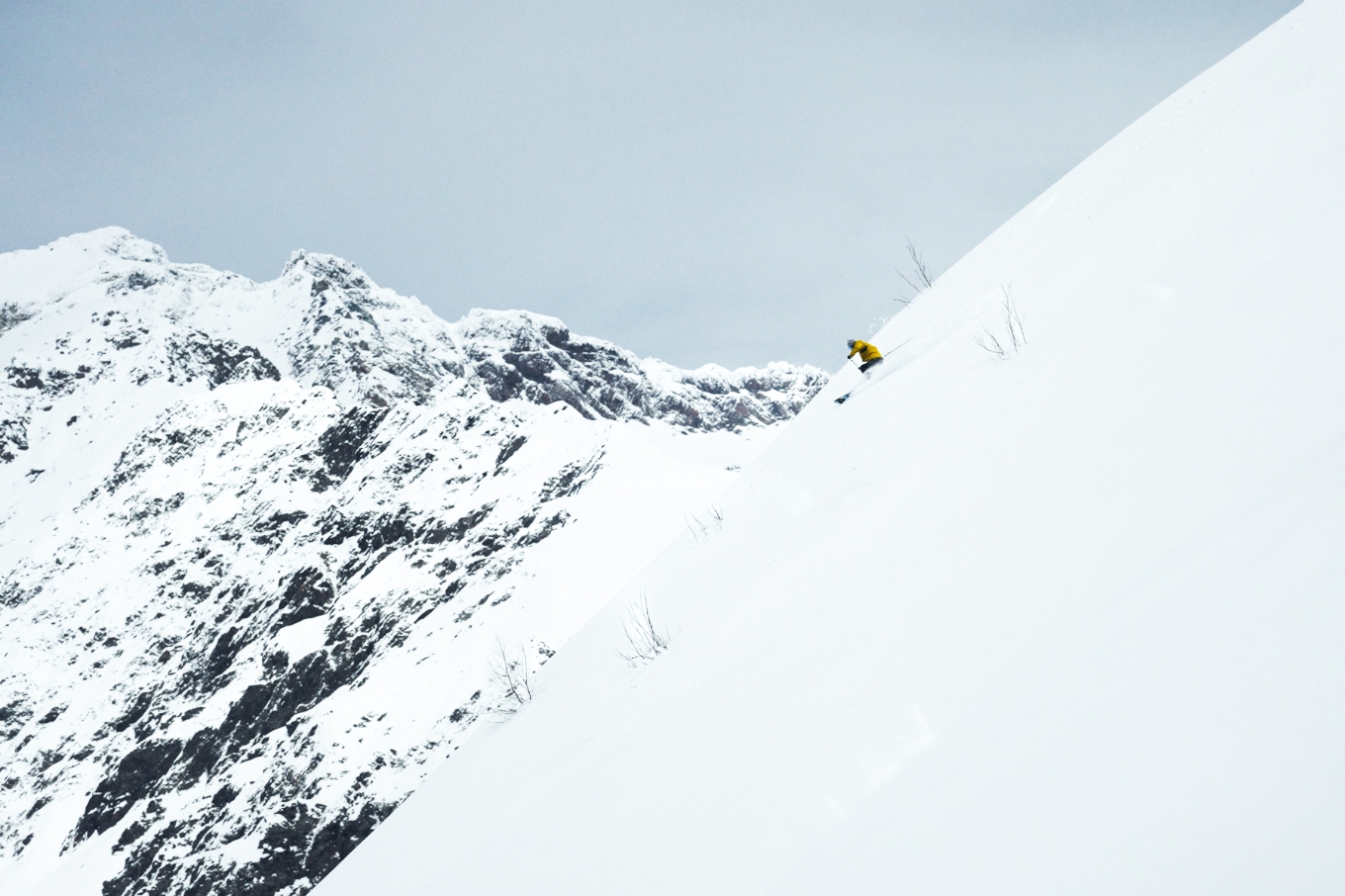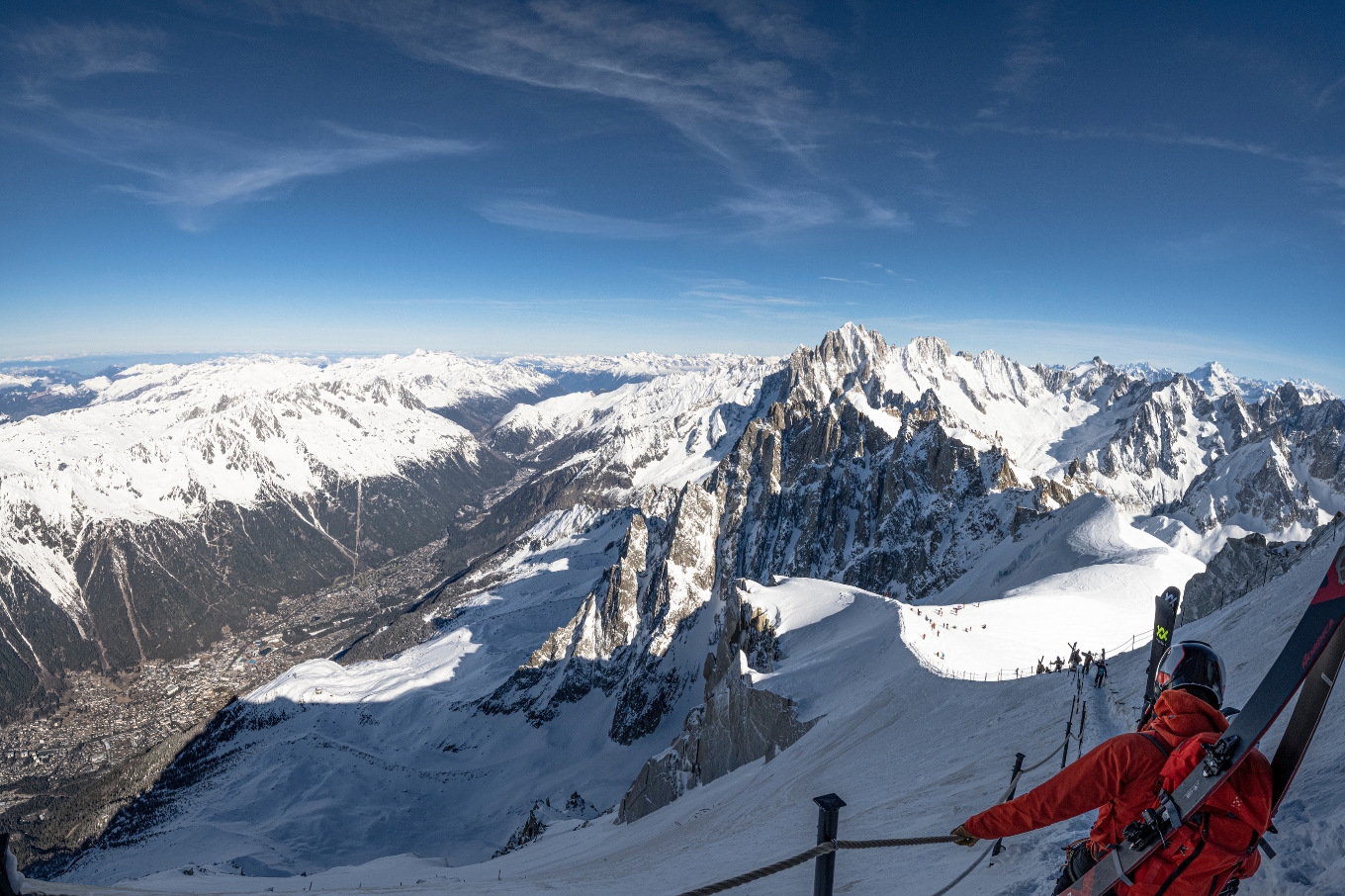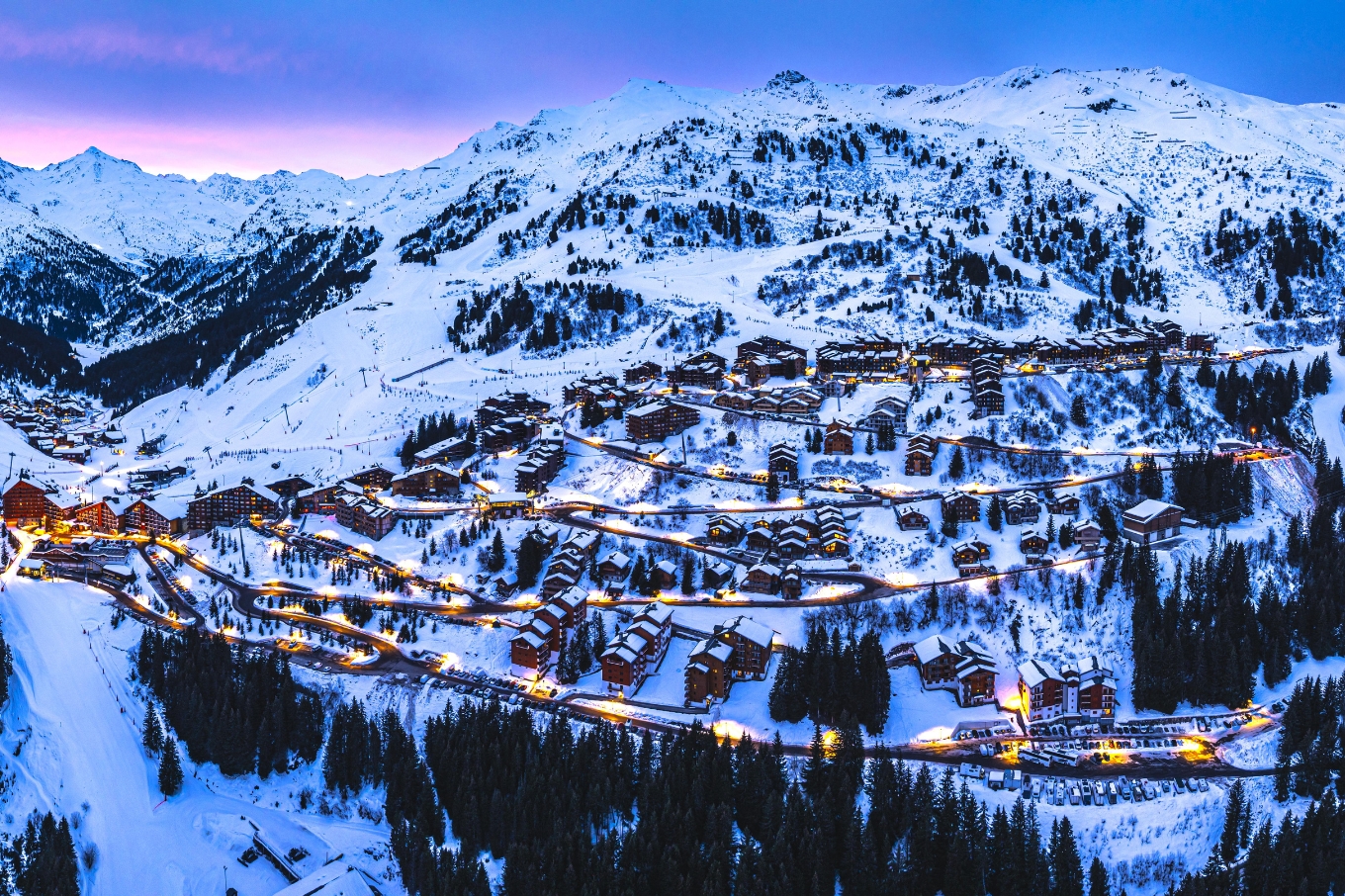Aussie rookie Zanna Farrell shaking up the freeride tour
Words: Reggae Ellliss
Zanna Farrell is a 24-year-old freeskier from Sydney, who finished third on the 2024 Freeride World Tour qualifying rankings, winning two events, along the way. However, prior to entering an event in Japan in Feb 2023, Zanna, a racer in her teenage years, had never competed in a freeride event. She won that comp in Japan which encouraged her to enter the two North Face Frontier events in the Remarkables, NZ last winter, where she podiumed in both and her freeride career was underway…
Zanna, you burst onto the scene out of nowhere and got a second and a third in the Frontier events in New Zealand last year. What had you been doing before those events?
Just skiing with friends, really. Freeride happened accidentally in a way. I grew up skiing in Thredbo and raced when I was younger. I was on the national team for maybe three or four years, but I stopped when I was around 16, during my first or second year in FIS. I took a big break from skiing, went to university, worked a bit and took a couple of years off.
How did you end up competing on the Freeride Qualifier tour?
I ended up going on a ski trip with some friends last year to Japan and Canada. At the end of it, I did a comp just for fun in Lotte Arai in Japan. It was a three-star event at the very end of the season and there weren’t many people, so I got in and put down a really good result. And then, with only one result, I was able to do the two-star in New Zealand off that. I came second there, so they gave me a wild card for the four-star! That was my trajectory into freeride, and that gave me the opportunity to come here to Europe. But it was honestly a total accident, and I was just skiing with friends on holiday.
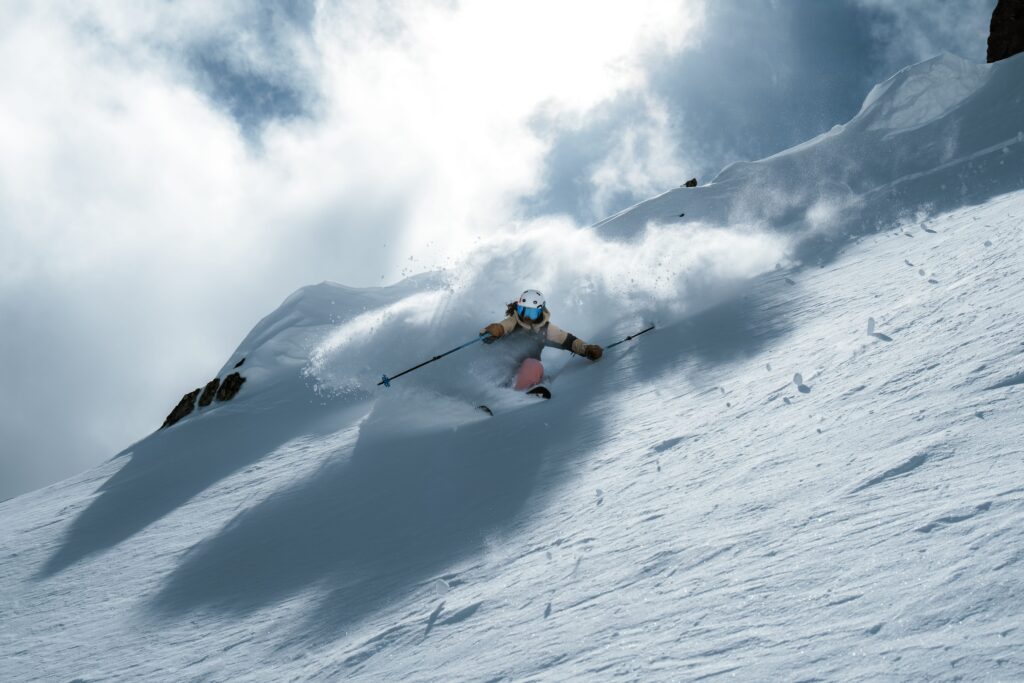
That’s extraordinary. As an ex-racer you’ve obviously got the technical skills. So, tell me about the second event in New Zealand. The Remarks has some varied, steep and challenging terrain, and of course it’s NZ, so it’s not necessarily great quality snow. How do you deal with that?
I put no pressure on myself because I’d never really done it before, and I didn’t have expectations on my performance. It really took the pressure off relative to what I’d experienced in racing. Obviously, the start gate experience is similar, and I’m used to skiing that kind of variable snow. I just made a plan in the morning and tried to stick to it. But, yeah, there wasn’t a whole lot that went into it.
New Zealand was my first big hurdle to overcome mentally, in terms of dropping in, and changing quite a lot in the way that I ski to fit into the freeride mode. Really dialing back the speed, focusing on navigation, and speed control is a big one. Not just to handle the terrain, but also to find your landmarks. Honestly, the New Zealand faces were nowhere near as hard to navigate as the ones I’ve skied here in Europe this season, on that course you could pretty much see most of it from the top.
So, you’ve done the New Zealand events and podiumed in both and gathered quite a few points on the rankings. You say “Wow, okay” Then you decide to head to Europe… But let’s take a step back, what were you doing at the time – work? university?
I’m working, I’m in my last year of a Master’s in Law. I studied politics, philosophy, and economics as an undergrad and I’m working at the Attorney General’s office in international investment law. I didn’t ski at all for about two or three years after I stopped racing, and it was challenging. I had multiple surgeries, and just the classic racer story of ACL and being a bit burnt out. So, really, I took two or three years off skiing before I took this long ski trip with my friends. And I just really started enjoying myself again. It’s a completely separate life.
Reggae: Totally. So, you headed to Europe to compete but again you were carrying a knee injury at the start of this season?
Yeah, so it was MCL and also possible ACL. I had mixed advice from different surgeons saying I needed a reconstruction, saying maybe I could get away without it, but I ruptured the MCL for sure as well. So that put a hole in the plans. Because after New Zealand I decided, “Okay, I’m going to go to Europe and I’m going to do the four-star events and see how it goes. I was training in Jindabyne on the airbag around the end of November. I got injured on my second jump, which was super unlucky. I ruptured my MCL and then pretty much wasn’t able to ski until the end of January.
So, it was really stressful, because in missing the four-star events it’s really difficult to get enough points to make the challenger events because they only run five of them. One of them is in Japan and it only leaves two. So essentially the first half of the season was botched, and I just did heaps of rehab. I was still pretty motivated; when you’re doing rehab in the middle of a season when you’d really like to be skiing, it’s quite motivating. Then I was ready, so I came over here to Verbier and did all my competitions. I think I did eight comps in three weeks or something crazy like that. Really, I did so many comps, and probably way more than recommended.
What, so you did all the smaller events to try and chase the points?
Yeah, I couldn’t do the four-stars. So, I did three-stars and two-tars, and basically just tried to win each event because, otherwise, you can’t get enough points.
Yeah. So that builds up points to get a start in the four stars. And then you won the Nendaz event in Switzerland. So, you’re back competing, talk us through your results…
I did a comp in Tignes, that was a bit early to come back and I was pretty injured, so that didn’t go so well. The next two were both in Verbier and Bruson, and I crashed both of them, so I’m not looking so good. We’re in mid-February now. Then, I actually had some friends who were going to Kazakhstan for some comps, so I thought, “Okay, cool, let’s go.” I did a two-star and a three-star there and won both of them. Then I came back to Nendaz. I did the three-star. I came second, I think. And then did the four-star and I won. Prior to the four-start I was completely below the cut, so I think I had to come first, second, or third to even make the cut for the challenger events. So, it’s been quite a lot of pressure this season, a lot more than I really wanted it to be. It was just a case of try and squeeze everything into February and I pulled it off, and just slid in at the end.
Yeah, right. And then, tell us about the challenger events, so where did you end up?
Yeah, I ended up third. The challengers were okay. I had the first one in Italy. I crashed the first two, actually. First one was honestly probably the best run of my life until the bottom. So that one, even though technically I crashed, I still count that as a win because I definitely dropped the biggest cliff I have all season and was feeling really good. On the second one, I crashed. The third one in France, I didn’t do so well. I got a bit lost. At that stage I think my confidence was a bit low, to be honest, from the previous two. My head game wasn’t quite there. And then the last one, in Austria, I came third. I finally put down a run, landed a run, and was super happy about it. I think I found a good medium between pushing a little bit harder and just dialing it back a little bit. I just wanted to put down a run – so that was my challenger journey; not so good.
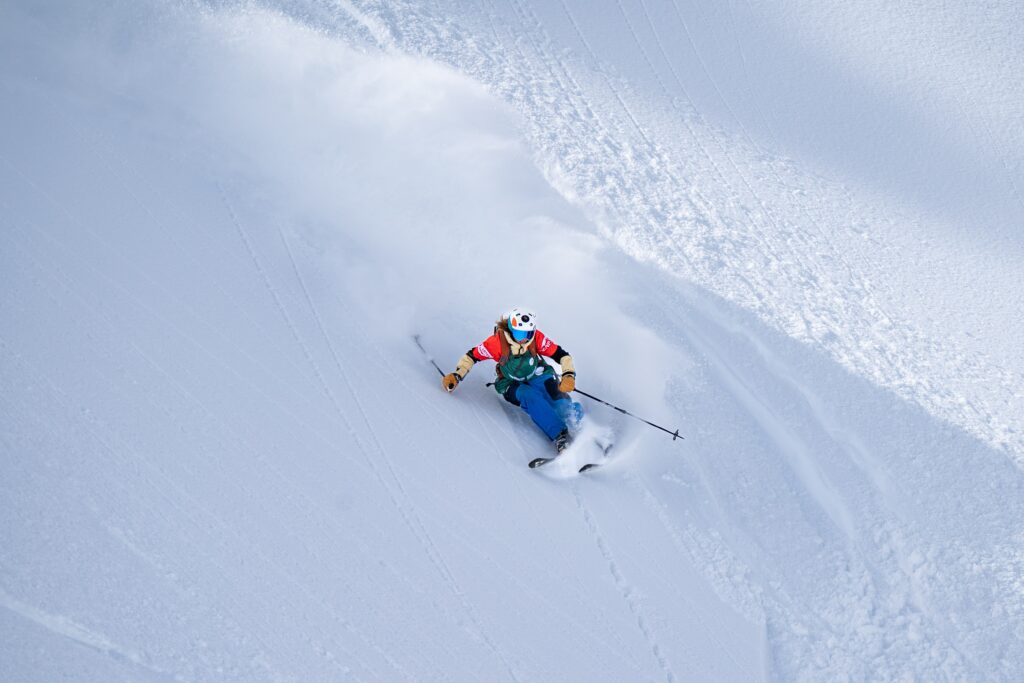
When you think about it, you’ve really had only a year’s experience in freeride competition. It’s pretty amazing for someone coming in without any experience in junior freeride events. So, you start at the Lotte Arai in February ’23 and now, here you are, knocking on the door of the Freeride World Tour 14 months later. That’s pretty amazing.
Kind of. It’s been a really, really steep learning curve though. I’ve learned so much about my skiing, myself, everything.
Yeah. Well, you mentioned before the airbag and hurting yourself. Obviously, in freeride now, there’s a lot of progression in it, 360s and back flips. That’s something you wouldn’t have done as a kid, I suppose, much with your race training. Is that the plan to come back down here to Jindy and do some more training, hopefully uninjured this time?
I think so. I really enjoy the freestyle part of skiing. And it’s something I’ve been wanting to progress for a while, and something I’ve done throughout my life in a very ad hoc way, and just sending it on big days without a lot of direction. So that’s something I’m keen to develop in a safe and structured way. And, for sure, the level of competition with women is going through the roof right now.
I’m super, super open to that side of the sport and it’s something I’ve been developing for a while. Just it’s been a bit difficult to put into comps this year with my injury. The advice was not to rotate and not to put any more strain on the ligaments. So that’s been a little bit frustrating for me, personally, just have not been able to progress that at all this season. I do feel like I have lots of time. I think I’m really at the beginning, I’m still learning how to navigate faces and everything.
Okay, so you’re coming back to Australia soon, back to work in Canberra. What’s the plan? Are you going to New Zealand again for the comps in August and September?
Hopefully. It depends mostly on finances and scheduling, stuff like that. I’m looking to get a bit more support this year and, hopefully, start some longer -term relationships with companies that are really care about freeride. I actually am going to work, or I’m going to be associated with Thredbo this year as an ambassador and do a bit of stuff with them.
So yes, I hope to go to New Zealand. I’m hoping to compete, but it just depends on a few logistics that I’ll need to work out to make it happen.

Yeah. And what about the knee? Is that an issue now?
Not really and hopefully I can avoid surgery. I’ve had trouble with my ACL for a long time and I play a lot of AFL. I play for Ainslie in Canberra.
Footy as well?
Yeah, so normally, at home, I’m playing footy a lot. I went to ANU so I’ve been in Canberra for five or six years which makes it easier to go to the snow too. I’m planning to play footy there and am signed on to play at a high level, more semi-professionally, when I get home.
I love footy, it keeps you really strong. Because I think freeride is, in a way, a contact sport, in terms of the impact on your body. I know it’s no one tackling you, per se, but it’s funny how it’s similar on your body as footy. So, it’s good training and it’s nice to play a team sport.
Well, you’re not the standard 24-year-old corporate lawyer. So, if you get back to Europe next season, you want to compete, make the cut for the challengers again. Long-term – the Freeride World Tour, is that the goal?
I’m thinking about it now. But to be honest, at the beginning of the year it never even seemed a possibility. Now I’m thinking about it as a goal, and it doesn’t seem so impossible, having done a season here and getting a bit of experience, and understanding what it means to be successful in the comp setting. It’s so different to freeskiing with your friends and skiing in a comp. I’m starting to understand the way the judging works, And I’m really getting a sense of the best way to approach the comps, and for me to adjust my skiing. For example, I went way too fast in a few events; I had this ticking time bomb in my head where I’m thinking, “I have to get down,” and that’s just not realistic or useful. So just these little things are all elements I am learning.
I definitely think the World Tour is a possibility, but I want to find a bit of support. And I think the most important thing for me is to find a team of other riders. I think that’s what we’re lacking in Australia is a community of freeriders and people to train with to push yourself.
* You can listen to the full interview with Zanna in an upcoming Chillfactor podcast.
